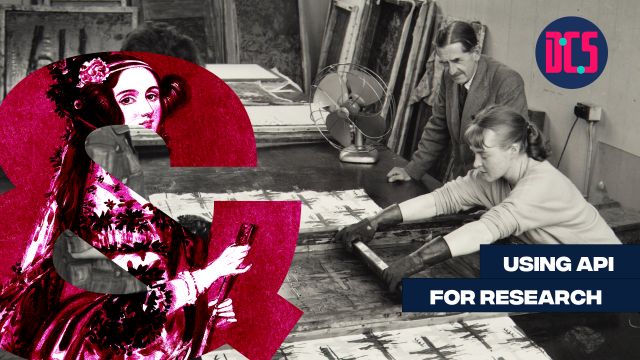Creating Custom Data Visualisations with Observable Notebooks & D3

In Person
Have you ever felt like a bar chart, scatterplot, or line chart just won’t cut it? In this course, we will explore how to create custom data visualisations. You will learn how to come up with ideas for custom visualisations and how to determine if they are helpful for your data project. You are also going to learn the basics of implementing custom visualizations using the JavaScript library D3 and Observable notebooks.
D3 is a popular JavaScript library for data visualization that lets you create fully custom visualizations. Observable is an online platform that lets you easily get started with D3, even if you have no prior experience with JavaScript. Observable notebooks let you upload and use data and are great for prototyping web-based data visualisations. This course will provide a basic introduction to the D3 library and the Observable platform, allowing you to build on these skills independently afterwards.
This is an intermediate level course. You will need some familiarity with basic data visualizations. Some experience with programming (in any language) is also beneficial. If you would like to familiarize yourself with JavaScript prior to the course, you may want to work through part of the W3Schools JavaScript guide (https://www.w3schools.com/js/) or the Observable introduction focused on data wrangling, particularly Part 1 and Part 2 (https://observablehq.com/d/f253f790ec8c6ff0).
This course will be taught by Chris Oldnall and Sarah Schöttler.
After taking part in this event, you may decide that you need some further help in applying what you have learnt to your research. If so, you can book a Data Surgery meeting with one of our training fellows.
More details about Data Surgeries.
Those who have registered to take part will receive an email with full details on how to get ready for this course.
If you’re new to this training event format, or to CDCS training events in general, read more on what to expect from CDCS training. Here you will also find details of our cancellation and no-show policy, which applies to this event.
You may be interested in these other training events:
- Making Interactive Web Maps: Finding the Right Tool for You
- Exploratory Data Analysis and Visualisation with Observable Plot
Return to the Training Homepage to see other available events.
Digital Scholarship Centre
Digital Scholarship Centre, 6th floor
Main Library
University of Edinburgh
Edinburgh EH8 9LJ












